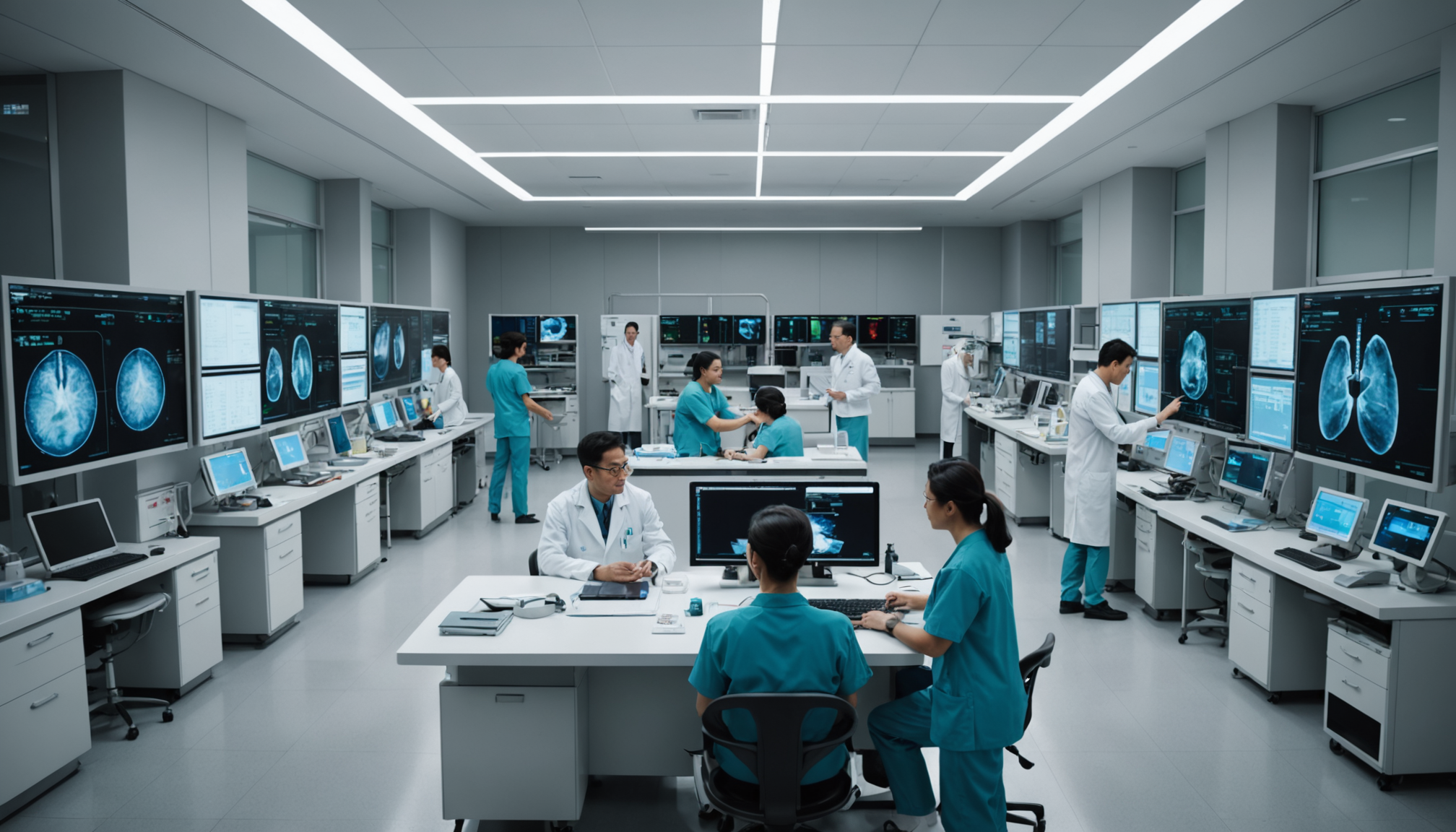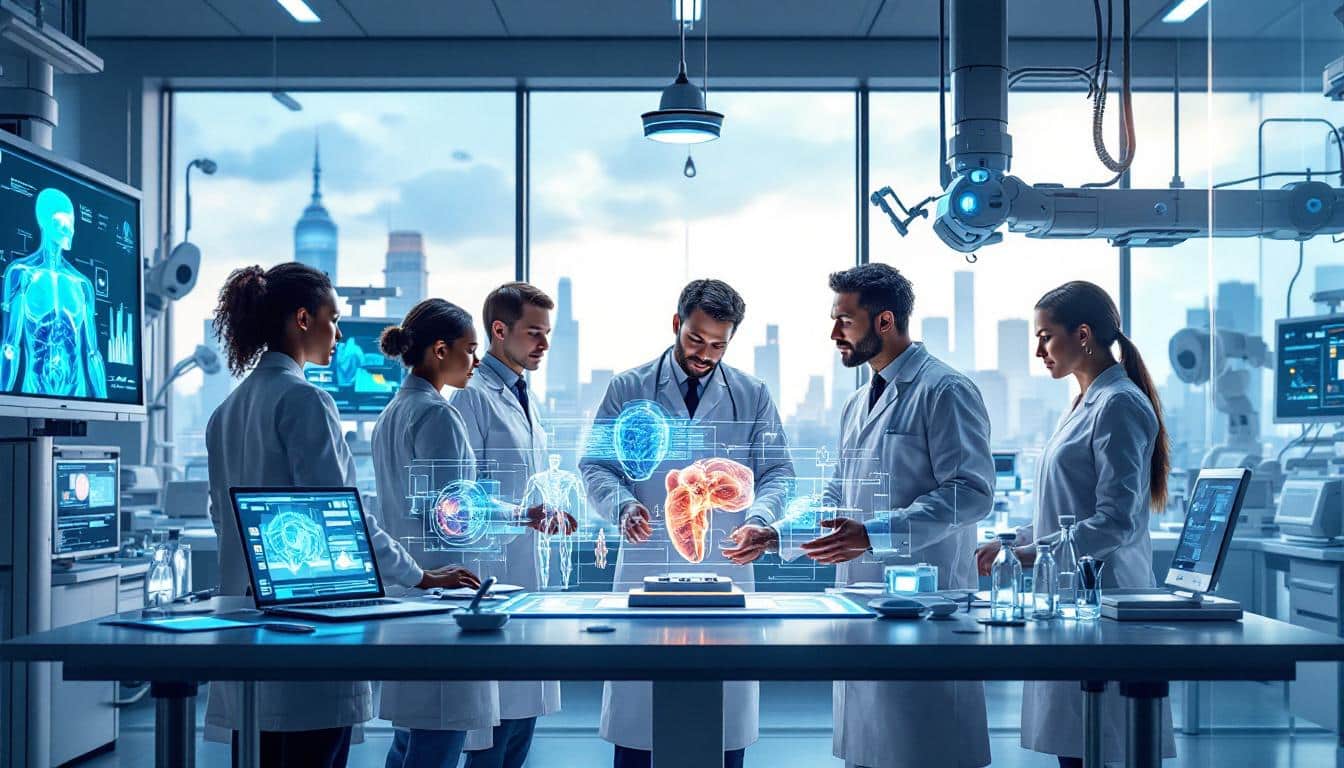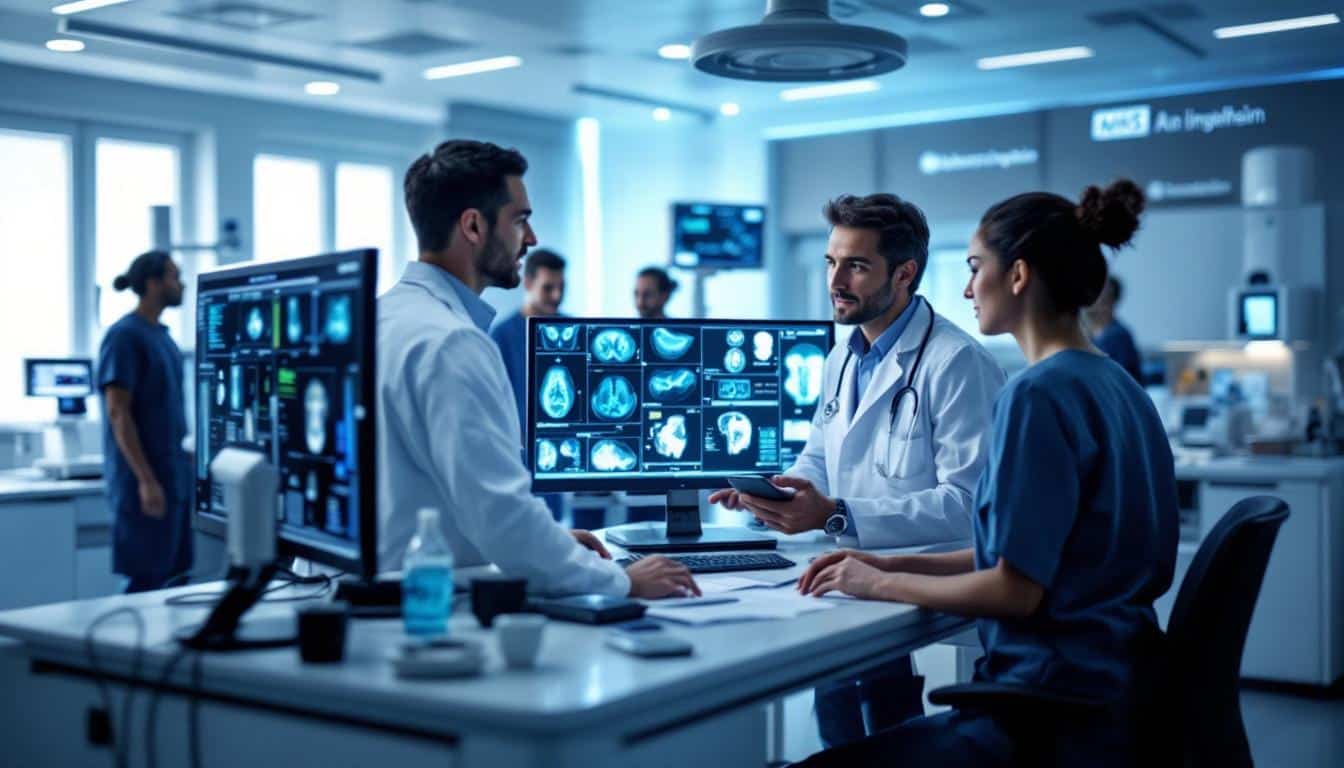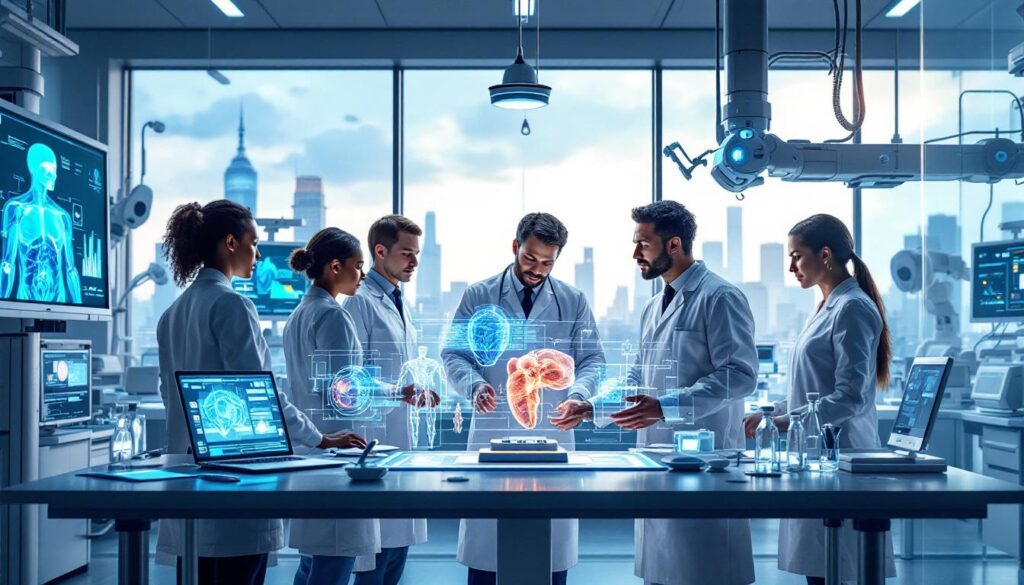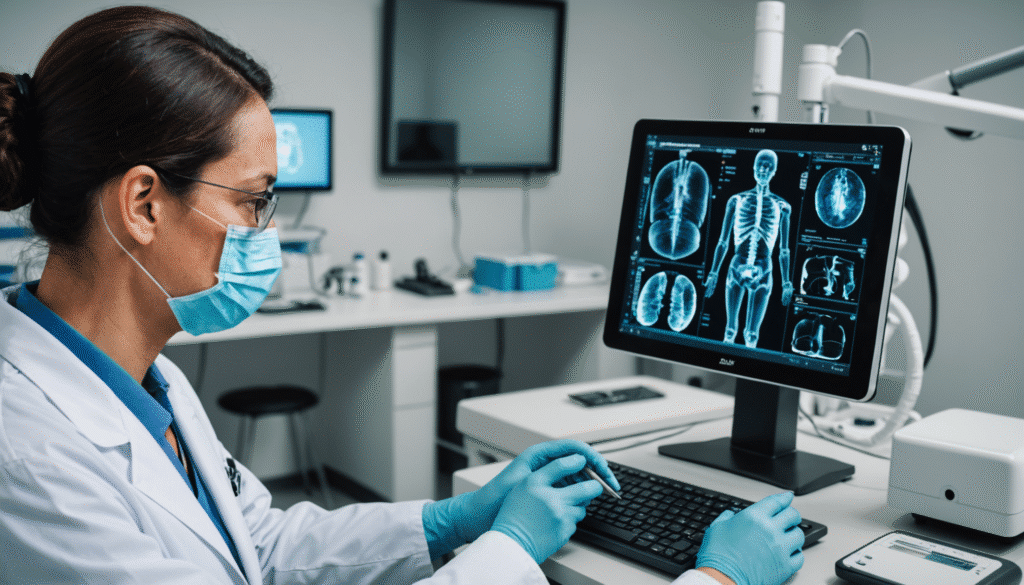The Singapore General Hospital innovates by developing a solutionartificial intelligence aimed at optimizing the prescription of antibiotics. This initiative aims to reduce the need to administer these treatments, while allowing a selection adapted to the specific needs of each patient. Through a model ofaugmented intelligence, the establishment is tackling a crucial issue: the antibiotic resistance, which threatens to undermine the effectiveness of medical care globally. This project highlights the use of clinical data to refine prescribing practices, with the objective of preserving the future of antimicrobial therapies.
L’Singapore General Hospital (SGH) is developing a solution based onartificial intelligence to assess the need to prescribe antibiotics, optimize their use and select the most appropriate treatments for patients. In collaboration with DXC Technology, the AI model, named Augmented Intelligence in Infectious Diseases (AI2D), initially focuses on cases of pneumonia, based on anonymized clinical data from nearly 8,000 patients. Preliminary results show that AI2D can reduce the number of cases to be reviewed by three times while achieving 90% accuracy in assessing the need for antibiotics, revealing that almost 40% of prescriptions could be inappropriate. This approach is of great importance, because pneumonia represents 20% of infections treated at SGH, and poor use of antibiotics contributes to the antimicrobial resistance, a growing global health problem. The programs of antimicrobial stewardship are gaining momentum to counter this trend by identifying best prescribing practices.
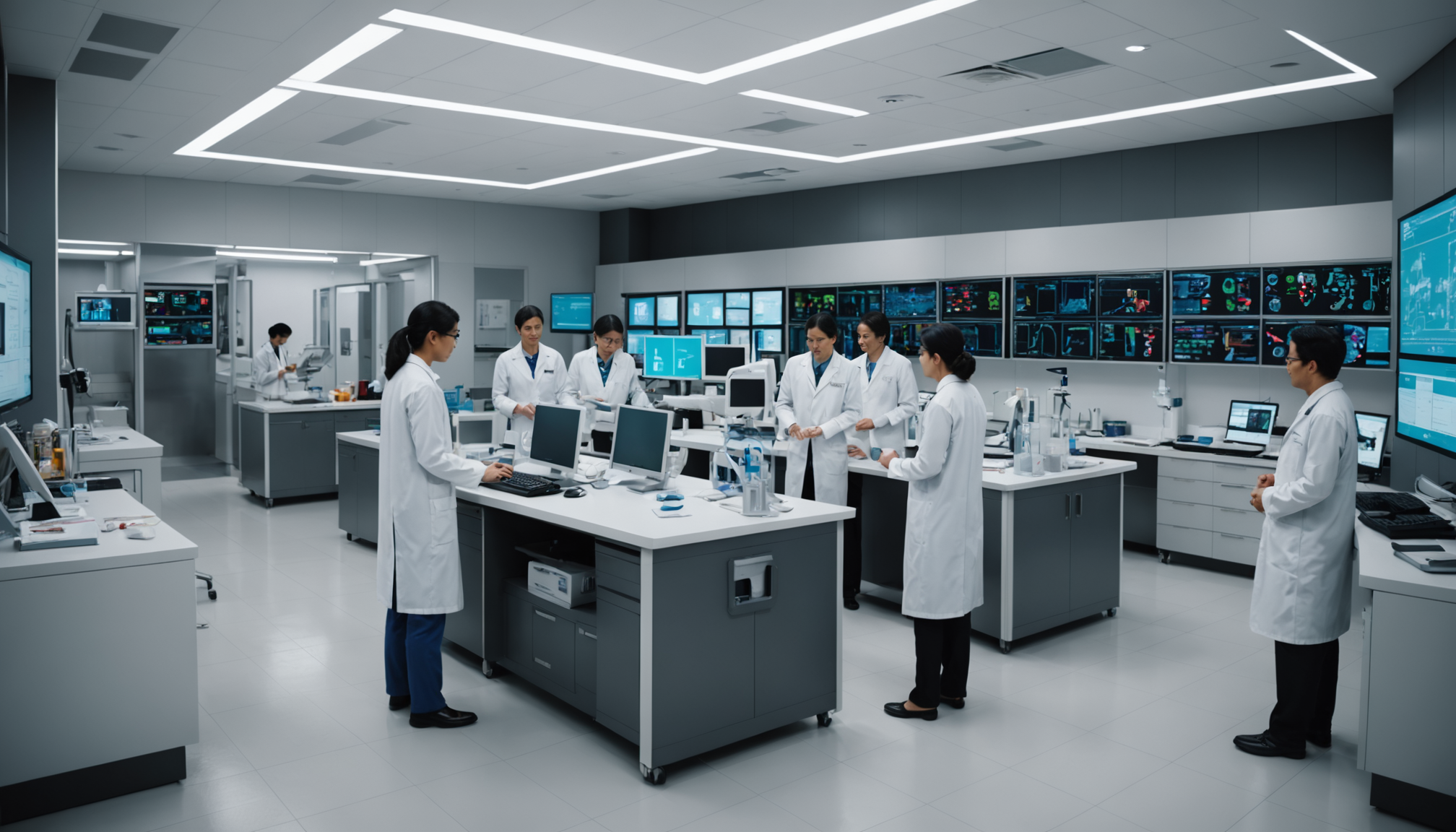
Singapore General Hospital and artificial intelligence against antibiotic resistance
At the forefront of the fight against antibiotic resistance, the Singapore General Hospital (SGH) is committed to the development of a artificial intelligence innovative. This project aims to accurately assess the need to prescribe antibiotics, reduce their overuse and determine the most suitable treatments for each patient. Collaborating with DXC Technology, the Ai2D (Augmented Intelligence in Infectious Diseases) model was specifically designed to analyze cases of pneumonia, one of the infections having a major impact on public health.
the promising results of the study
The research work carried out by the SGH pharmacy team has validated this new technology with exciting results. The study involved comparing AI with 2,000 cases of pneumonia in 2023. The results showed that AI2D was able to reduce the number of cases to be examined by three times, making it possible to detect situations requiring intervention specific almost 12% of the time, compared to just 4% during a full manual review. Previously time-consuming analyses, sometimes taking 20 minutes, can now be carried out in less than a second, which represents a considerable time saving for healthcare professionals.
the importance of such progress
With around 20% of infections treated at SGH being related to pneumonia, and antibiotic prescriptions being the most common, it is crucial to optimize their use. Globally, a large proportion of hospitals prescribe inappropriate antibiotics, exacerbating the problem of antimicrobial resistance. To counter this, antimicrobial stewardship programs are being implemented in many healthcare settings. By integrating artificial intelligence In these programs, hospitals can better manage antibiotic use, thereby reducing hospitalization costs and the risk of complications for patients. Research continues to further evaluate the effectiveness of AI2D in other infections, including urinary tract infections.
In an era where antibiotic resistance becomes a growing global concern, the Singapore General Hospital (SGH) is positioning itself as a pioneer thanks to the development of artificial intelligence solutions. The named system AI2D was designed to optimize the prescription of antibiotics by assessing their necessity for each patient. Drawing on anonymized clinical data from thousands of cases, AI offers precise and relevant recommendations to reduce antibiotic consumption, which is crucial to fight against nosocomial infections and their resistance.
Recent studies conducted by the SGH research team demonstrate promising results. By simplifying the process of analyzing clinical data, the AI2D model helped reduce the number of cases to review and effectively identify those requiring intervention. Additionally, the model’s 90% accuracy in antibiotic administration decisions reflects the potential of artificial intelligence to revolutionize the medical field.
This project is not only limited to technological progress, but is part of a broader dynamic ofimprovement of care to patients. By minimizing the inappropriate use of antibiotics, SGH helps protect public health and save financial resources for the healthcare system. Combating antibiotic resistance must be a priority for healthcare institutions around the world, and SGH’s initiative could serve as a model for other hospitals.
Collaboration between medical institutions and technology companies highlights the importance of a multidisciplinary approach. The introduction of programs antimicrobial stewardship will facilitate better understanding and wiser use of antibiotics, while joining international efforts to stem this growing threat. By exploring applications of AI in medicine, SGH is opening avenues for future research and new practices that will transform the healthcare landscape.

